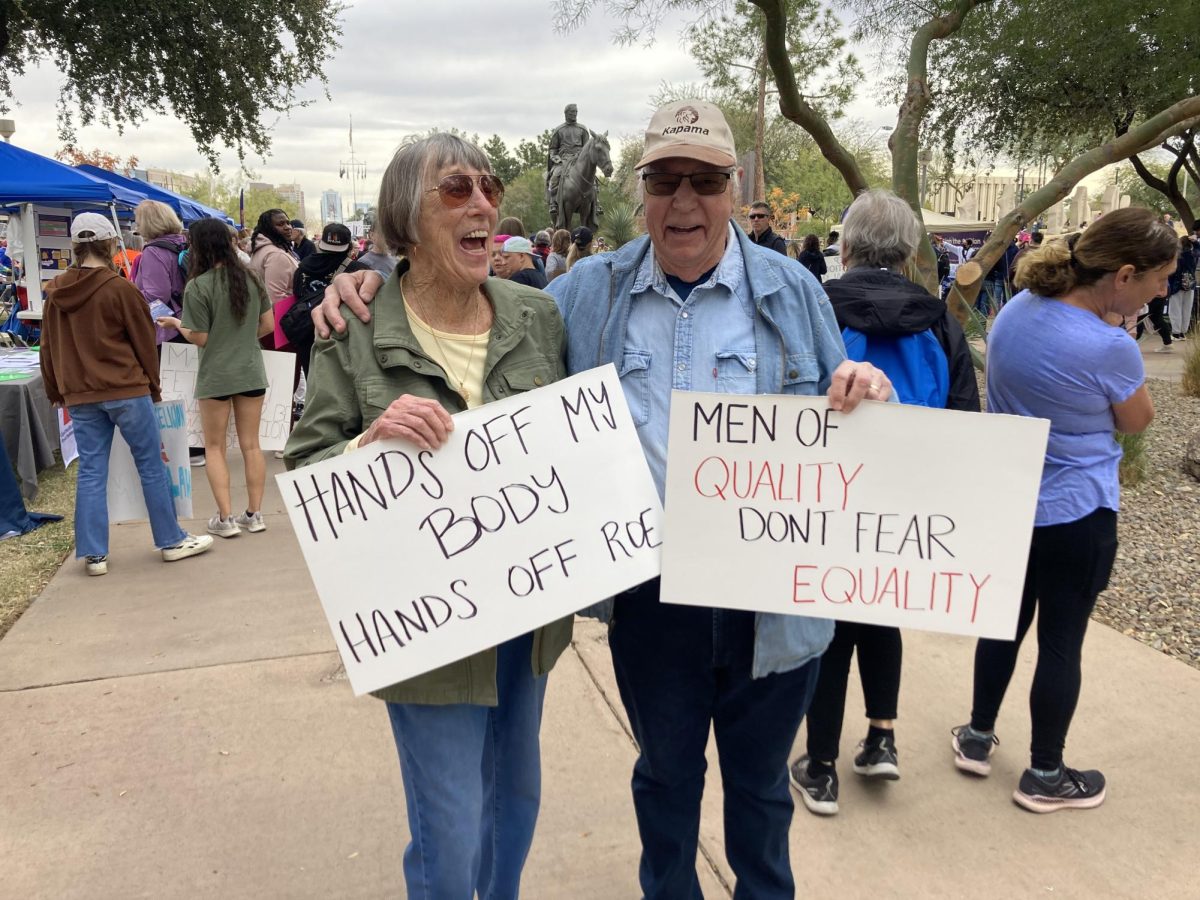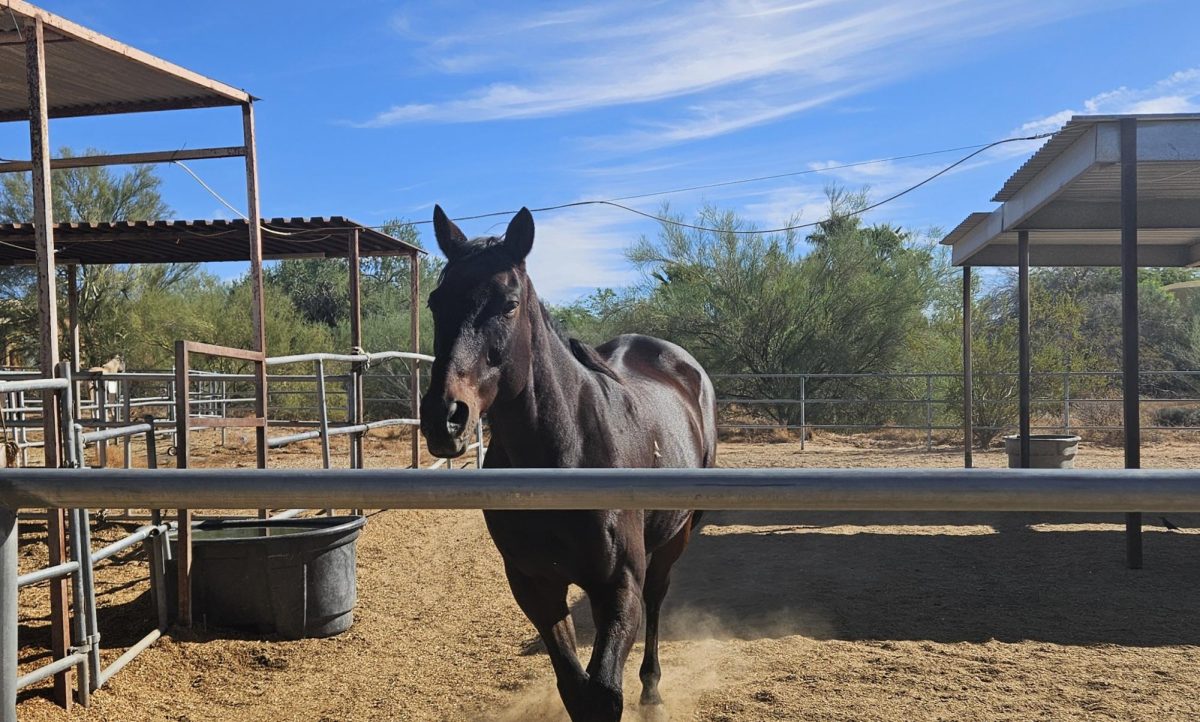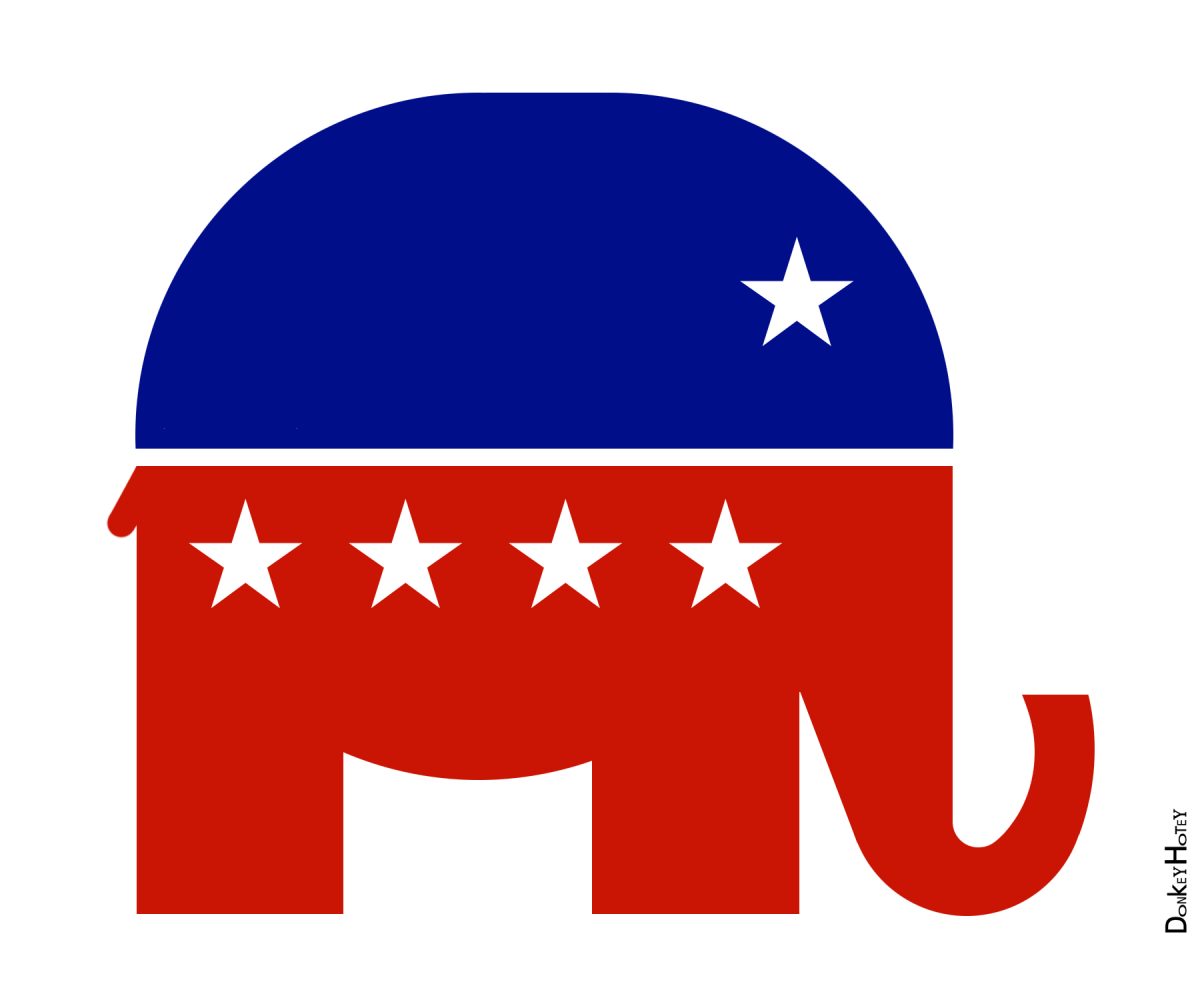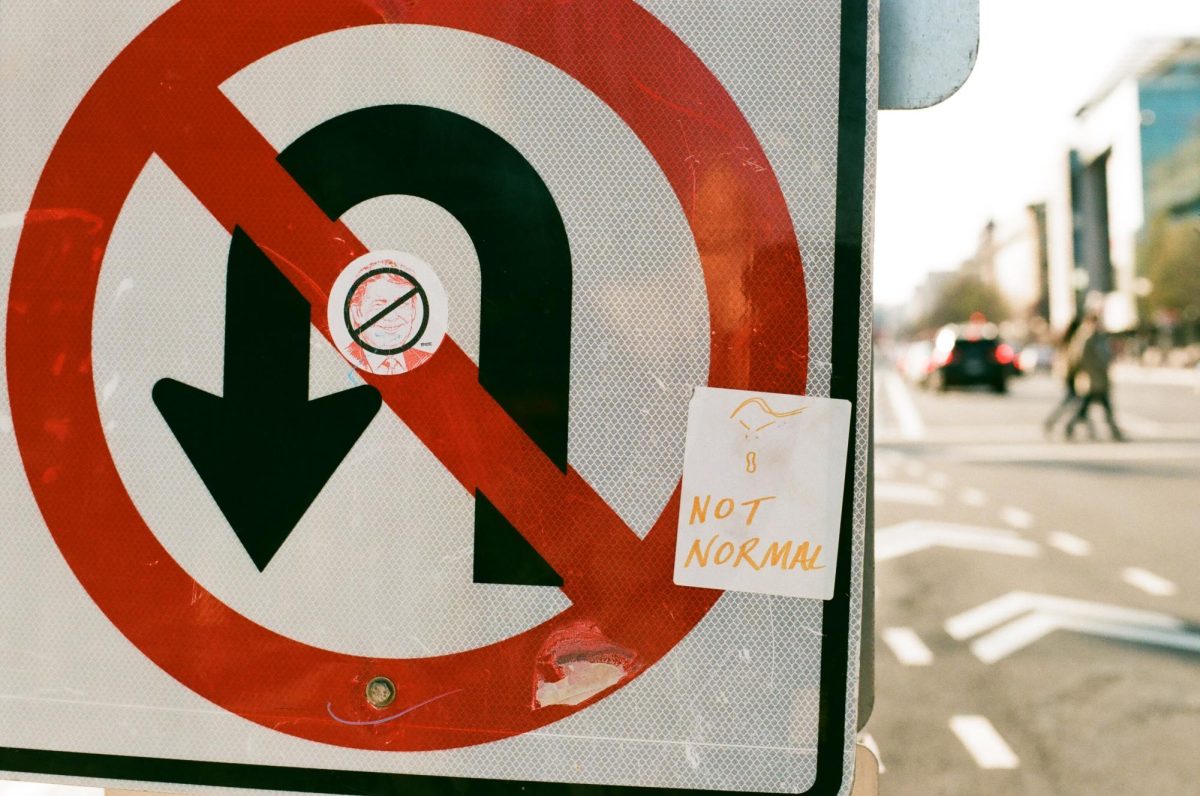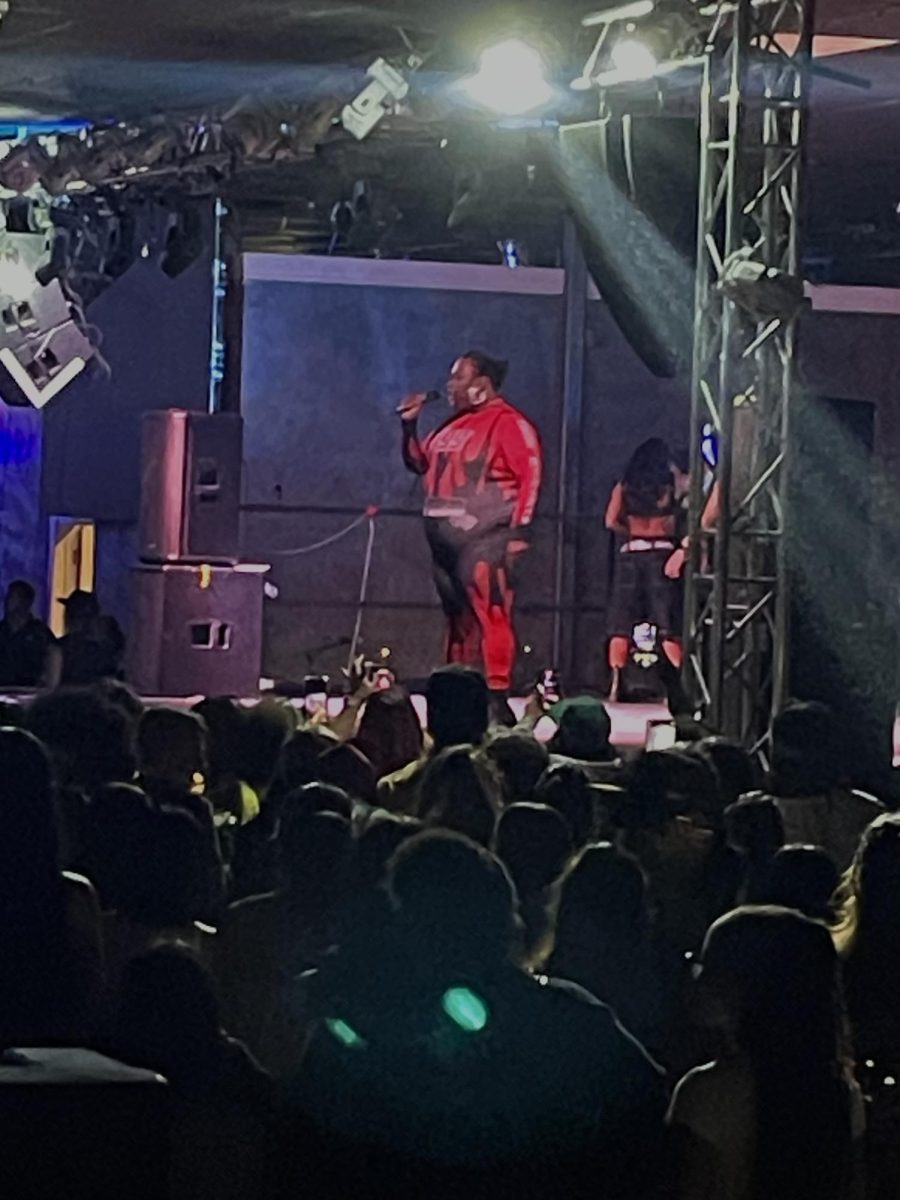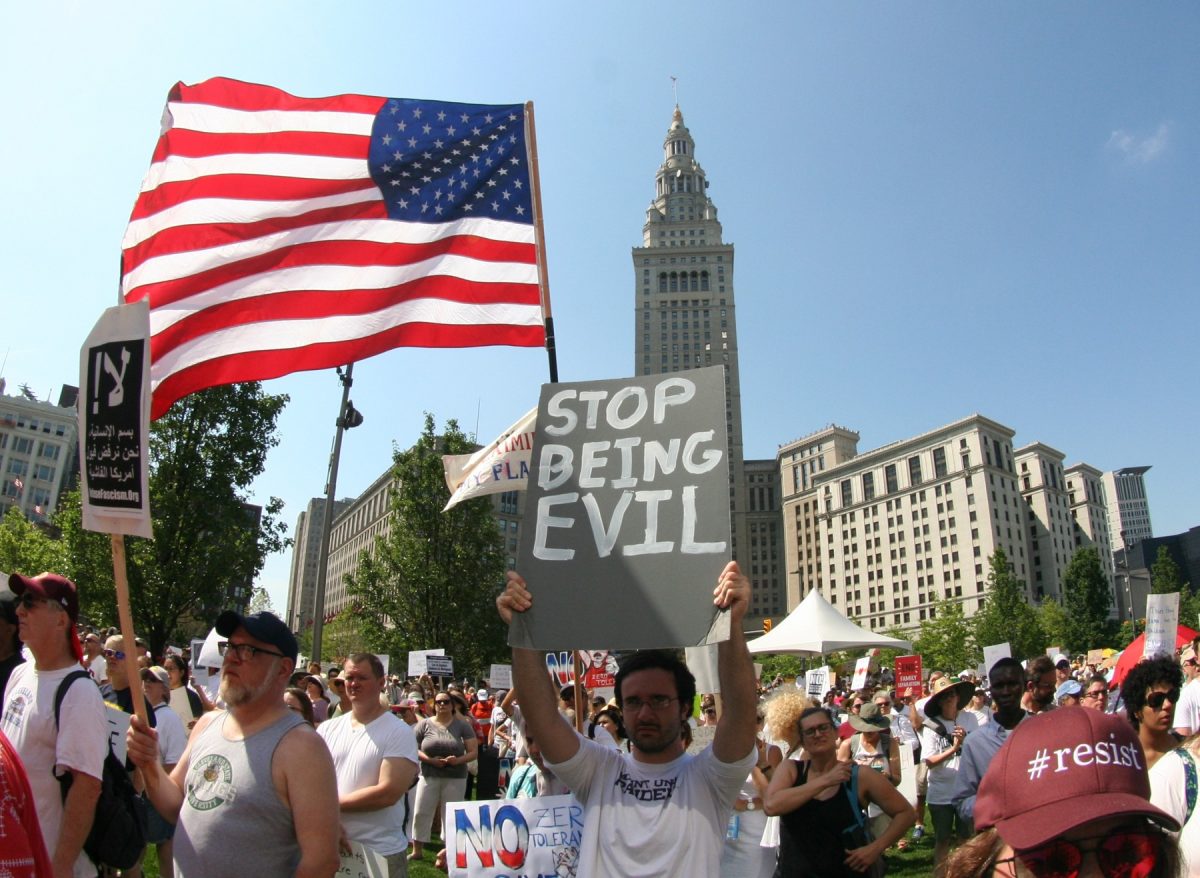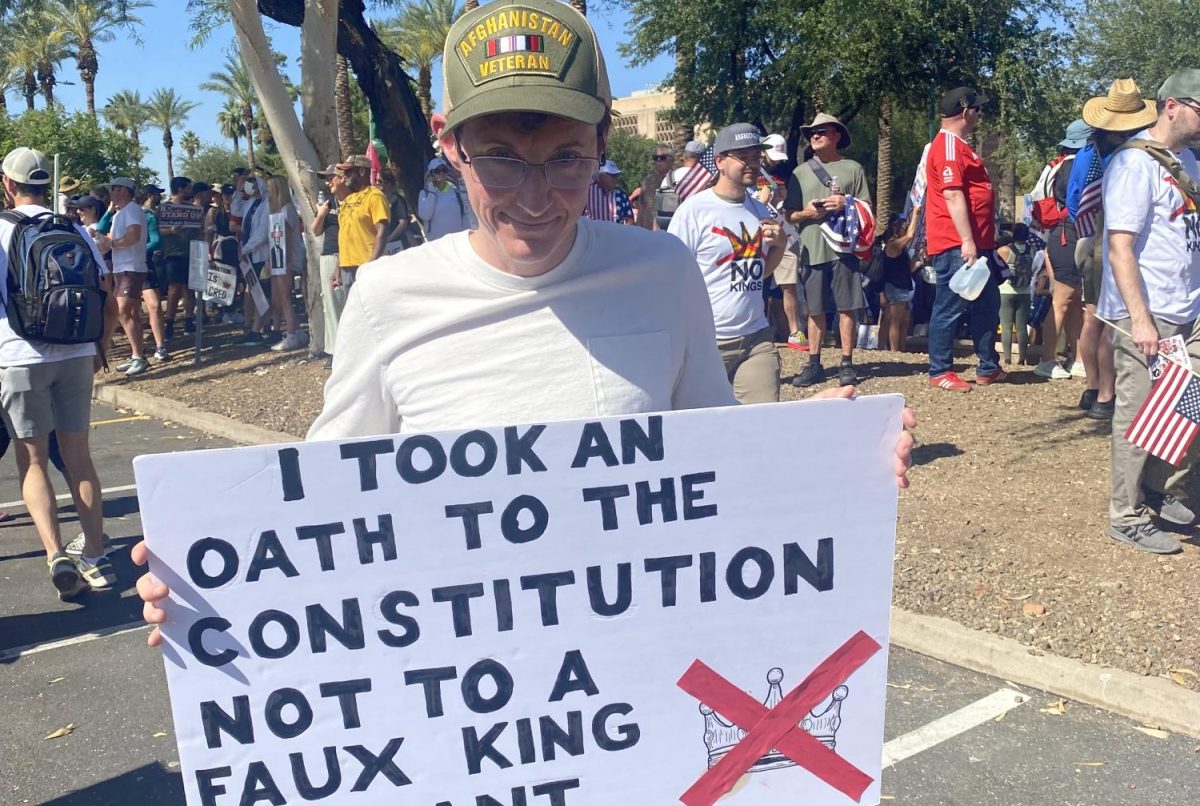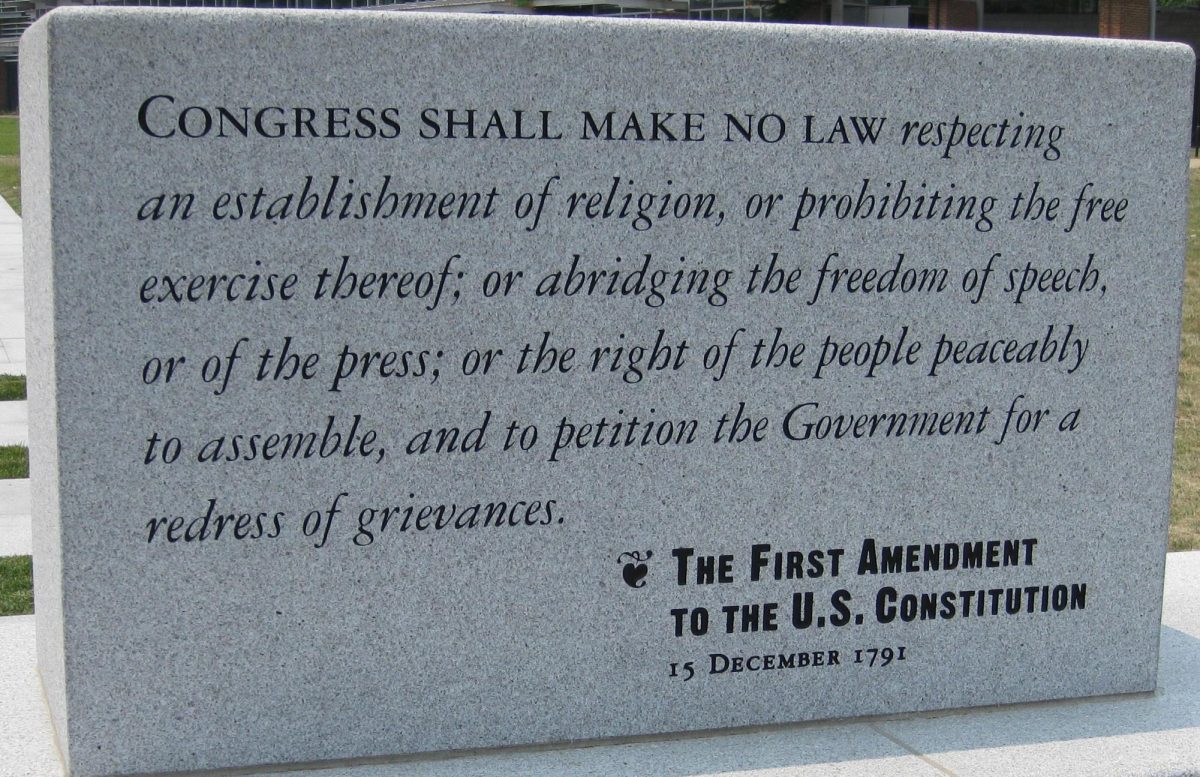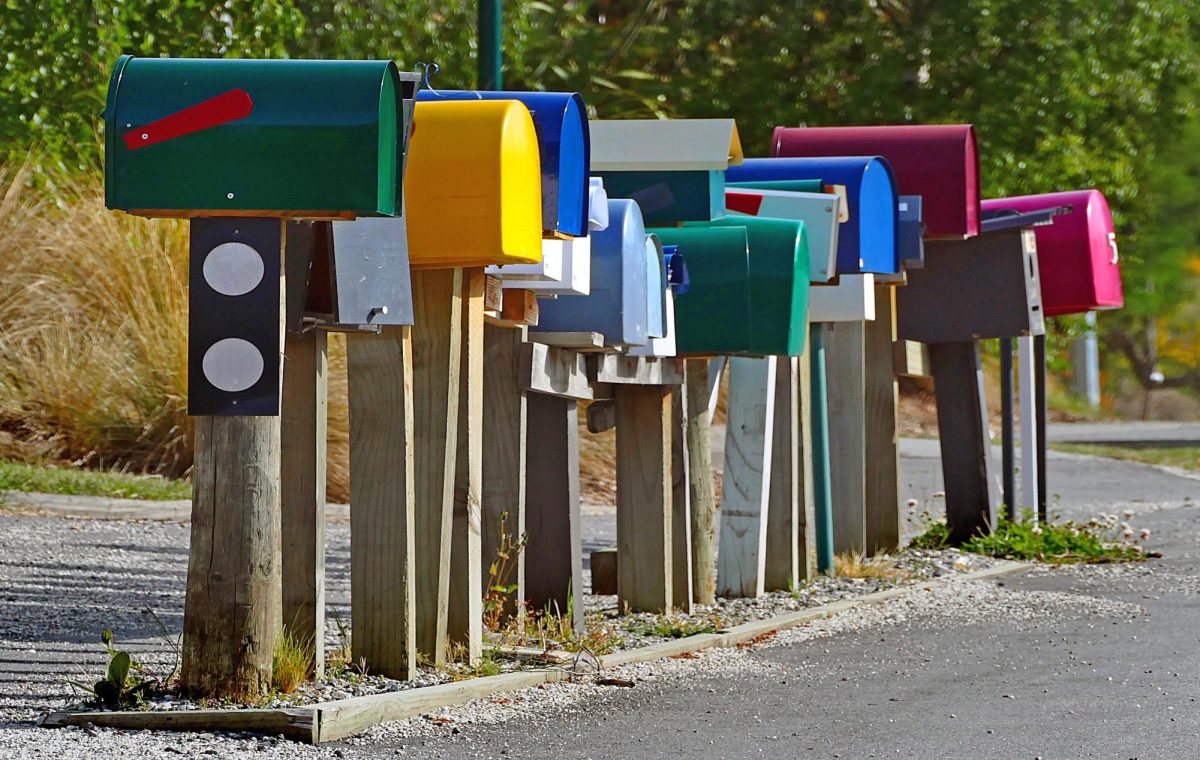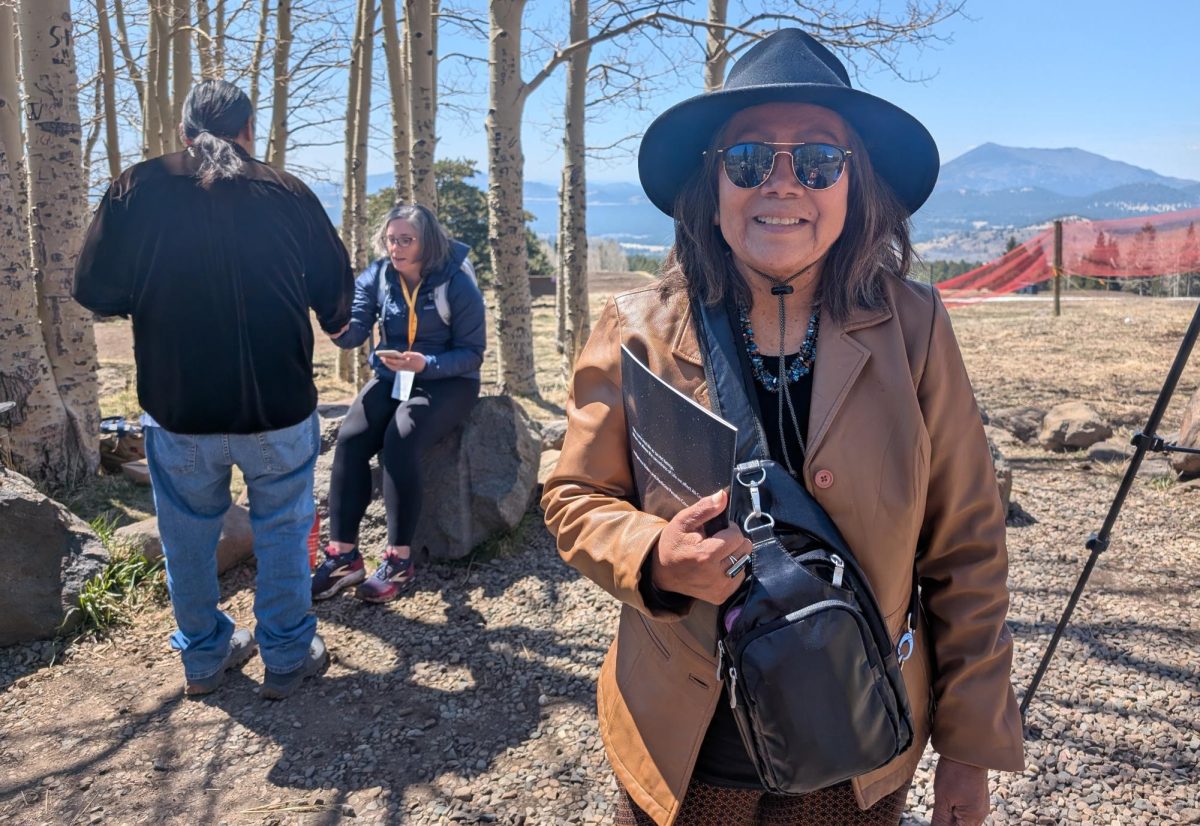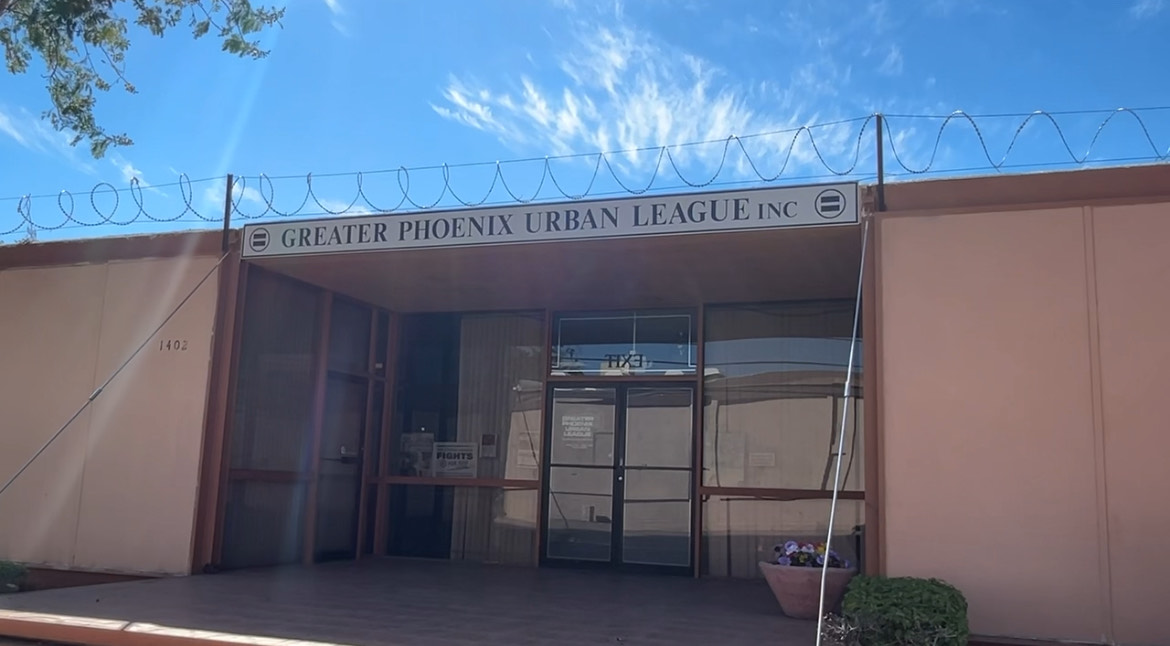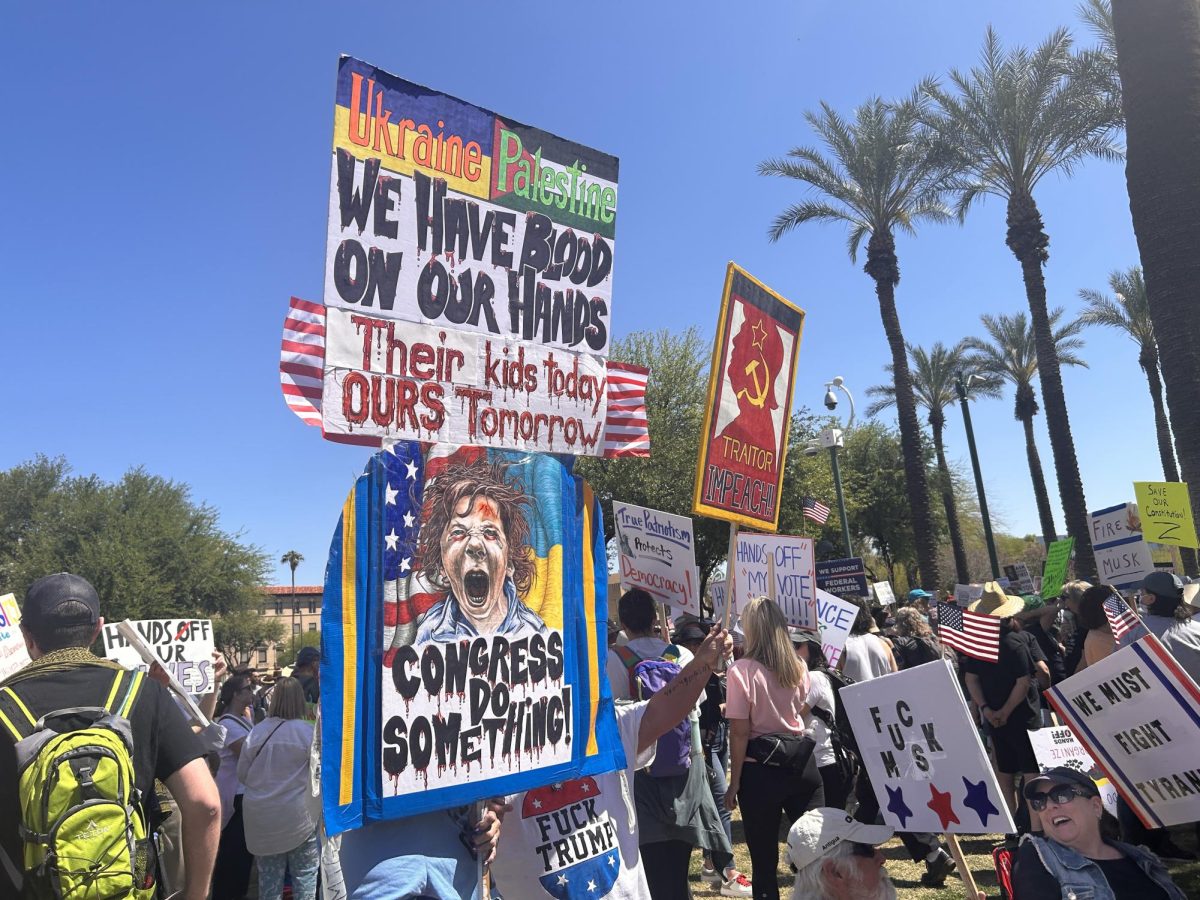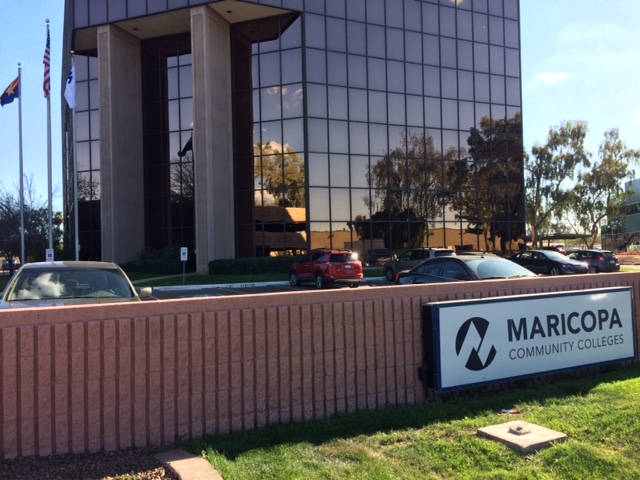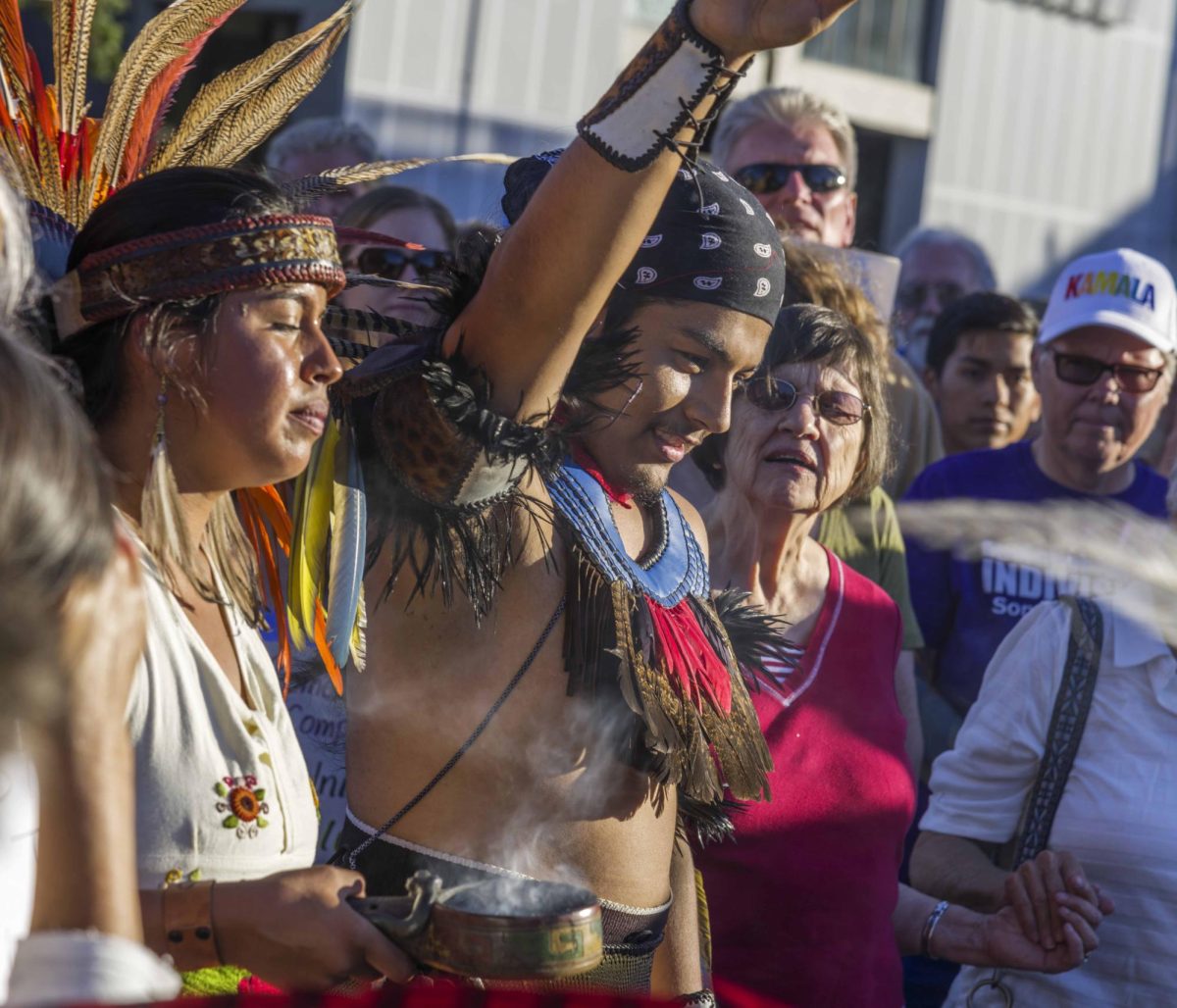Abortion rights activists of all generations gathered by the hundreds to participate in the “Bigger Than Roe 2024” National Women’s March held near the Arizona State Capitol on Saturday morning.
Passionate community members were accompanied by abortion rights groups like Arizona for Abortion Access, Planned Parenthood, Healthcare Rising and others at Wesley Bolin Memorial Park in Phoenix to rally and gather support for an abortion rights ballot initiative.
This ballot initiative, the Arizona Abortion Access Act, includes a Constitutional Amendment on reproductive rights that would make it a fundamental right for a woman to obtain an abortion any time before viability, which is noted as 23 or 24 weeks of gestation.
To appear on the general election ballot in November 2024, the initiative needs a minimum of 383,923 valid signatures from registered voters before July 3.
Community members from all corners of the state showed up this morning, including Amanda Gandolfi of Tucson who came with her niece, Annalisa Cordova.
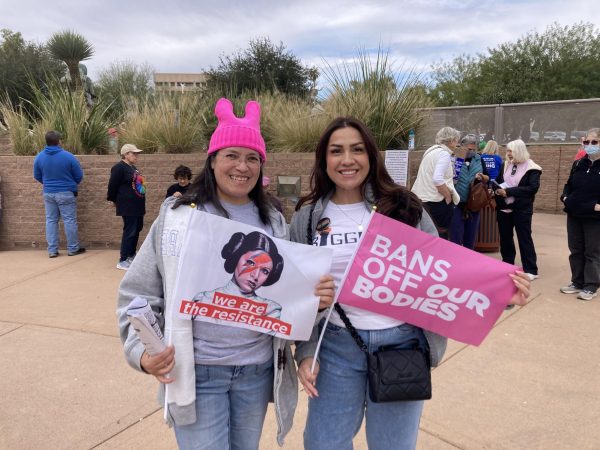
“We drove up because we are concerned about where women’s rights are headed,” Gandolfi said. “We wanted to come and show our support for Arizona and make sure that we don’t put women in more subservient positions by forcing them to have children.”
Arizona is one of nine states that anticipates seeing an abortion rights amendment on the November ballot, making Arizona a major abortion battleground.
Understanding this, notable speakers like State Rep. Analise Ortiz, D-District 24, Women’s March Executive Director Rachel O’Leary Carmona and Attorney Gloria Allred came out to inspire the crowd, along with other local medical professionals and community leaders who shared their personal stories.
Many spoke from a place of concern not only for themselves, but also for the young women in their families.
Cynthia Zack, holding her “Grannies for Reproductive Justice” poster, told Northeast Valley News, “I just feel so sad that rights that were hard fought for and were so important are being taken from us. I want my daughters and my grandchildren to have choices.”
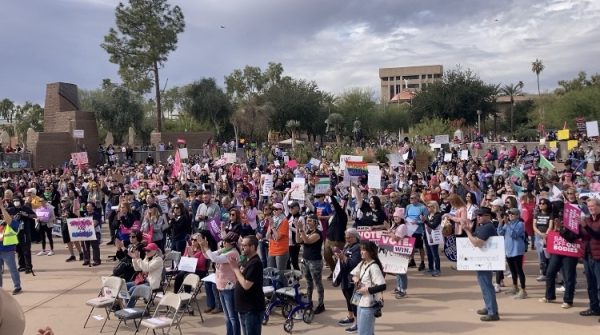
Amid crowd chants of “My body, my choice!” advocate Anastacia Andrade told Northeast Valley News, “I came out here for my daughters rights, she’s a teenager and she’ll vote this year.”
“Everyone who’s fighting for pro-life–they have their choice, but they’re pushing their choice on us. We have the same right to say no, we don’t want to have a child,” Andrade said.
The first National Women’s March took place seven years ago on Jan. 21, 2017 in Washington D.C. to recognize the U.S. Supreme Court Decision Roe V. Wade made on Jan.22, 1973. The event has been annually commemorated during the weekend of Jan. 19-21 since then in different cities across the nation.
The annual march has taken on greater meaning after the overturning of Roe V. Wade by the U.S. Supreme Court’s Dobbs v. Jackson Women’s Health Organization on June 24, 2022.


